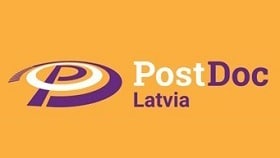During these three months the following activities were implemented within the frameworks of the project:
- Scientific work comprising reading the literature on specified topics
- Reporting the research results in the scientific conferences
- Mobility
- Results dissemination activities
Scientific work included research of statistical models used in the field of smart economy, researching the scientific literature to identify barriers and drivers of smart governance implementation in a smart city, researching the scientific literature on identifying the positive and negative impacts and externalities of smart management implementation in a smart city, research of scientific literature on risk management in the financial sector, reading newly published articles dedicated to the smart economy in a smart city. There were also prepared two articles and they were submitted to the journals indexed in Scopus Q1.
The results were reported in the following conferences:
- Popova, Y. (2022). Economic Substantiation of Smart City Dimensions. Plenary session of the 22nd International Conference “Reliability and Statistics in Transportation and Communication” (RelStat’22), Riga, Latvia
- Popova, Y., Cernisevs, O. (2022). Smart City Digital Production. The 21st International Conference “Reliability and Statistics in Transportation and Communication” (RelStat’22), Riga, Latvia
- Popova, Y. (2022). Technological Advancement of CEE Countries and Smart City Ranking. Plenary session of the VII International Scientific-Practical Conference “Membership in the WTO: Prospects of Scientific Researches and International Technology Market”. Calgary (Canada)
- Popova, Y. (2022). Determination of Components of Smart Economy Model. 31st International Multidisciplinary Conference «Recent Studies and Ideas». ICMS XXXI Luxembourg
Within the mobility frameworks the activities of financial sector of economy were studied. The mobility was implemented to Papaya Ltd., which offers financial services and integrates third-party solutions into the applications (web and mobile) as Fintech solutions. This visit allowed getting acquainted with the main principles of banking services and fintech services provision and demonstrated how the cross-border financial services are provided.
The project dissemination was implemented via such activities as the Open Lecture “Smart Economy in Smart City” for the students of Transport and Telecommunication Institute and reports at open round tables in the Baltic International Academy devoted to various aspects of smart city.
